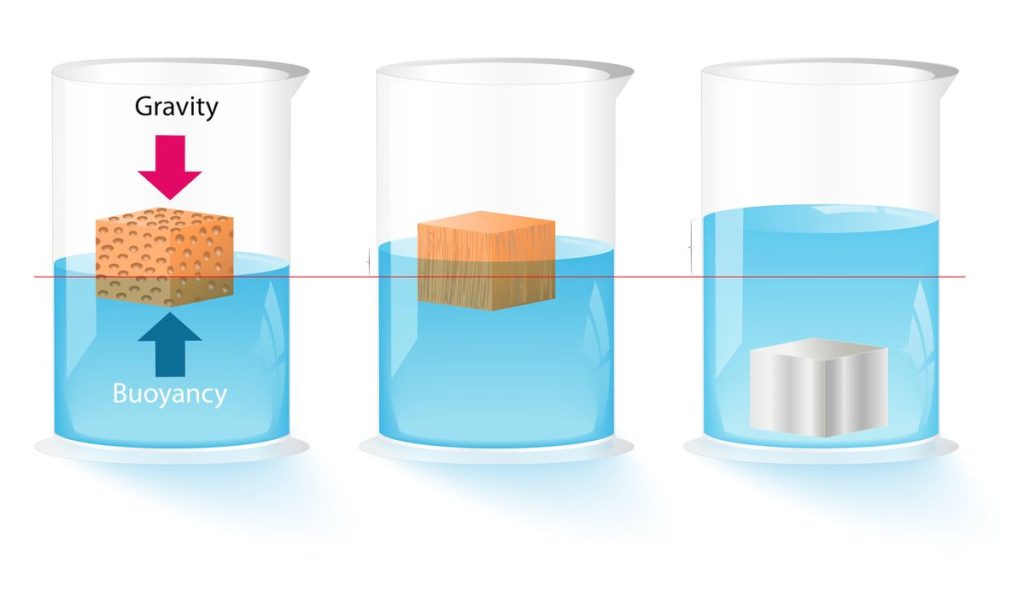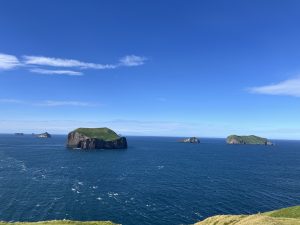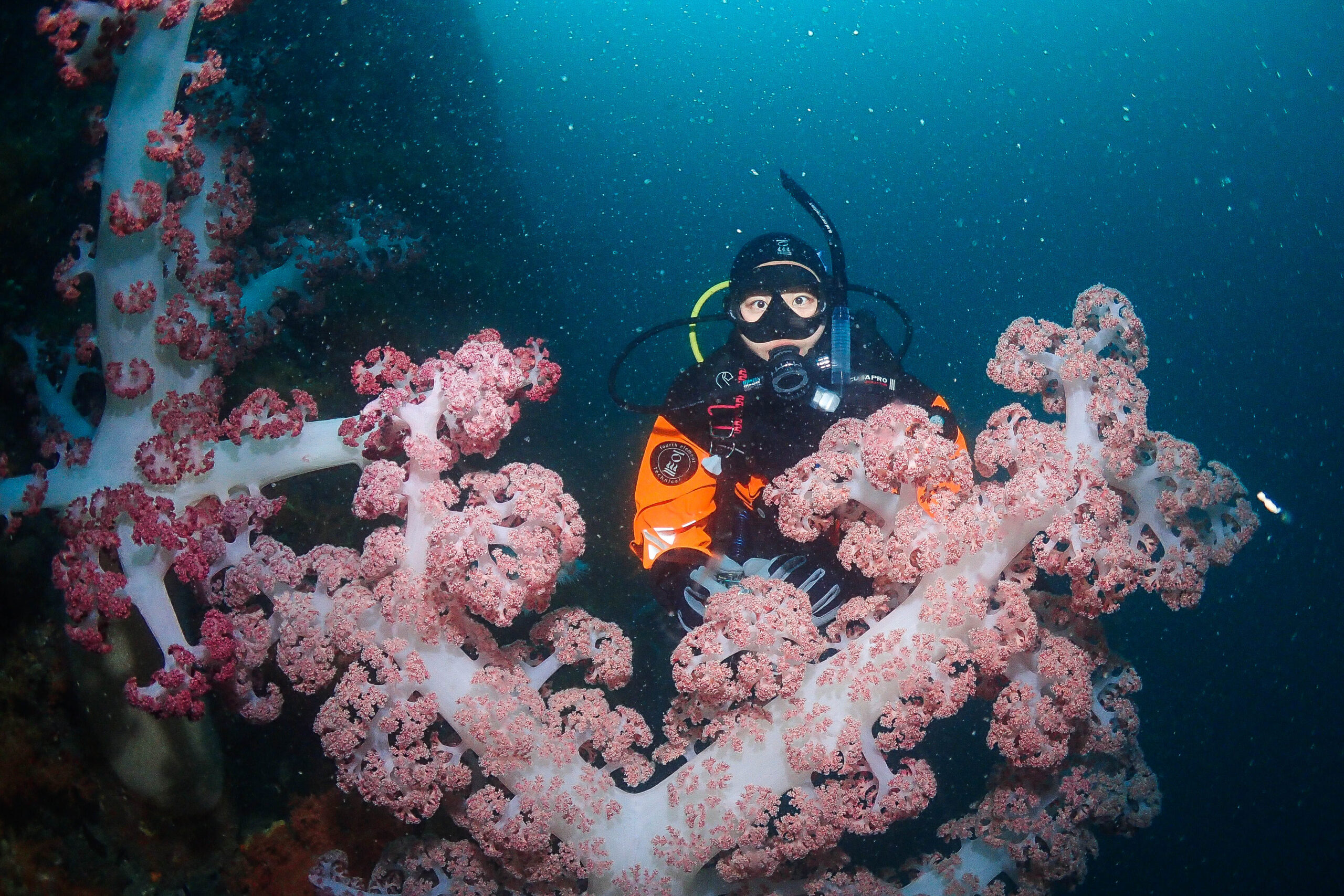When divers are asked why they dive and what they enjoy most about diving, the answer we usually get is the happiness of being in another world.
When we really start to descend from the surface, you get a magical feeling of entering another world. But what happens inside our bodies is even more fascinating than the scenery around us.
So let’s go back inside and look at what happens to our bodies when we dive. I will give brief explanations under the headings, but I will try to support them with reference articles, as short explanations of some topics may cause misunderstandings and confusion.

Pressure – The First Thing We Feel
As we start to descend, we start to feel the weight of the water around us on our body. The air spaces in our body, such as the ears and sinuses, are the first places where we feel the pressure. For this reason, we need to equalize our ears at certain intervals.
Not only our body but also the air we breathe into our lungs is compressed. As a result, one might expect our lungs to contract at the same rate. But thanks to modern diving equipment, we breathe air in accordance with the pressure around us. This allows us to breathe naturally.
If you would like to learn more about ear equalization, you can take a look at the article Why and How We Equalize Our Ears While Diving.

Your Body Becomes an Element of Balance
Buoyancy. In fact, it is our ability to control our buoyancy that gives us the feeling of floating or flying in space. The difference between sinking and diving comes from our control over our buoyancy.
On the one hand the buoyancy of the water, on the other hand the weight of the water above us pushing us downwards. During diving, we control our buoyancy with BCD, the buoyancy control device. But this alone is not enough.
I recommend you to review the article Why It is Important to Have Perfect Buoyancy in Diving and How to Achieve Perfect Buoyancy, which I have previously written in more detail about buoyancy, which is a subject in itself.

Breathing – Slower, Deeper, Smarter
During the dive we start to breathe more calmly, slowly and deeply. We instinctively move less and try to conserve energy.
If you want to read more in detail, you can take a look at the Mammalian Diving Reflex article.

Temperature – You Lose Heat Fast
Water is 800 times denser than air. Even in tropical waters we lose body heat 25 times faster under water than in air.
In response to this, blood vessels constrict (vasoconstriction), which leads to some changes in blood circulation.
For more detailed information, you can take a look at Thermal Regulation for Divers – Heat Management and Diving Safety.

Nitrogen Loading
Breathing compressed air underwater introduces nitrogen into your bloodstream. And this nitrogen is absorbed by our tissues.
The deeper and longer you stay, the more nitrogen your tissues absorb.
If you ascend too fast, the nitrogen can bubble up in your tissues and blood, causing Decompression Disease (DCS), also known as “strokes”.
That’s why we take safety breaks and ascend slowly, this gives your body time to release the nitrogen safely.
If you want to look a little more in-depth and history, check out A Brief History of Decompression Sickness.

Everything Closer and Bigger
Have you ever noticed that your dive buddy looks cartoonishly big underwater?
Light is refracted as it passes from water to air (inside your mask).
Underwater objects appear about 33% larger and 25% closer. This is why divers always exaggerate a bit when describing what they saw after a dive 🙂 🙂

Mental Change Underwater Awareness
Physically, diving changes you, but mentally it transforms you even more.
Your focus narrows.
Your breathing slows down.
You become acutely aware of every movement, every sound (or lack of sound).
It is like meditating in a magical blue world.
That’s why many divers say that diving is therapeutic – it’s not just adrenaline. It is also a deep peace.

Our body is an incredible structure, expanding its limits to adapt, survive and even thrive in environments it did not evolve in. But diving also shows us how fragile we are and why we need to respect our limits.
It shows us the importance of adapting to nature, not fighting it. The way to do this is to know ourselves and our bodies.
Take care of yourself




